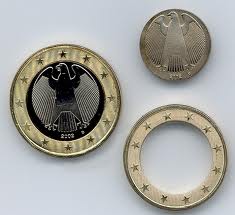
The abyss of knowledge of the European situation is as impressive as the pontification of gurus about the end of the Euro. In two previous blogs I suggested not to short the Euro (you would have lost 20%) and that the problem is the one Americans refuse to see: the deplorable state of their currency, further weakened by the recent QE2 initiative of one of the worst President that the Federal Reserve had recently.
But let's look at the arguments.
The first is that Germany might "drop" the Euro and go back to the Deutsche Mark. This idea ignores two factors. The first one is that there is no way the members of the Eurozone can "drop" the Euro under the prevailing treaties. There is no exit mechanism and any such mechanism would have to be agreed unanimously by the 16 Members of the Eurozone: that is totally unlikely, if not impossible.
But there is a reality that few observers understand: before the Euro, most weak European countries -who, by the way, are the same as today- were resorting to competitive devaluation. In other words the disparities of discipline and performance were resolves by devaluing the currencies of the weak countries, and the Italian Lira, the Spanish Peseta and the French Franc were always part of it. That was making German companies less competitive.
Now, there are no more competitive devaluations, and Germany is the best performing European country and the most solid financially. The fact that the Eurozone participants agree in difficulty was totally predictable. So predictable that the Stability Pact attached to the Maastricht Treaty provides for sanctions against those who derail. Instead, Europe derailed and did not impose those sanctions as a result of its weak political governance and the fact that the problem was entirely in the hands of politicians and no institution or mechanism was provided to prepare those decisions. It is that negligence that led to the current crisis.
However, it also has a secondary advantage: those economies that diverged economically and socially are forced to act now and correct the mechanism. A common currency means that investors will differentiate the countries through interest rates, and they do so. That forces eventually the countries with high interest rates to take drastic and decisive measure not to go bankrupt.
In a sense, the current crisis should further strengthen the Euro, and since the dollar is on a sliding slope, its value should improve seriously in the coming months. The key to that is the ability of the weak countries to take the drastic measures they need. It creates social turmoil. It will be politically difficult. Provided that the financial support of the European Stability Fund is assorted with strict conditions, there is a chance that the Euro comes out reinforced and stronger.
It requires political decisiveness: the need for convergence is urgent. Without it, further crisis will continue to make investors doubt. Those doubts, however, should not include any scenario of break up or disappearance of the Eurozone.